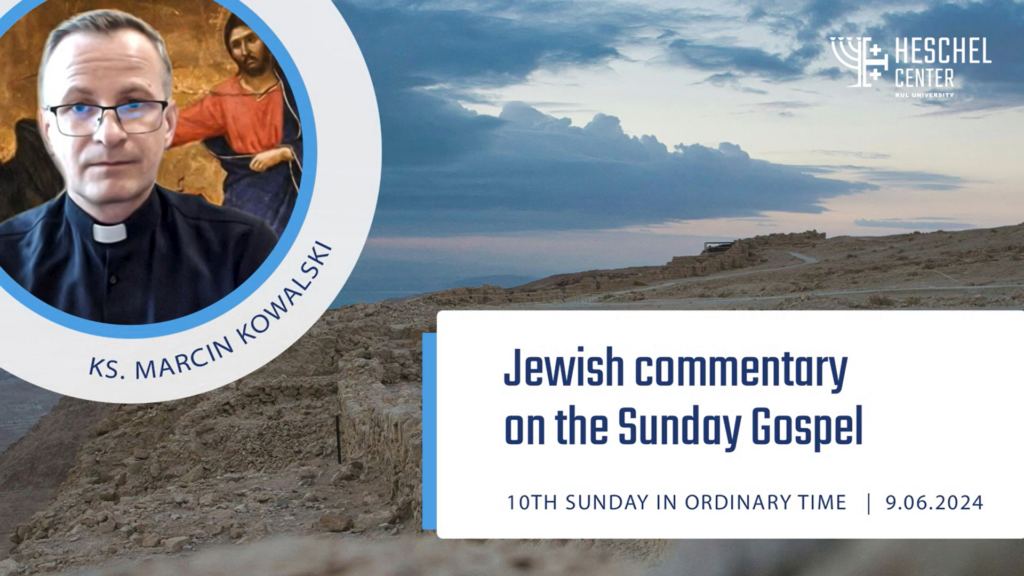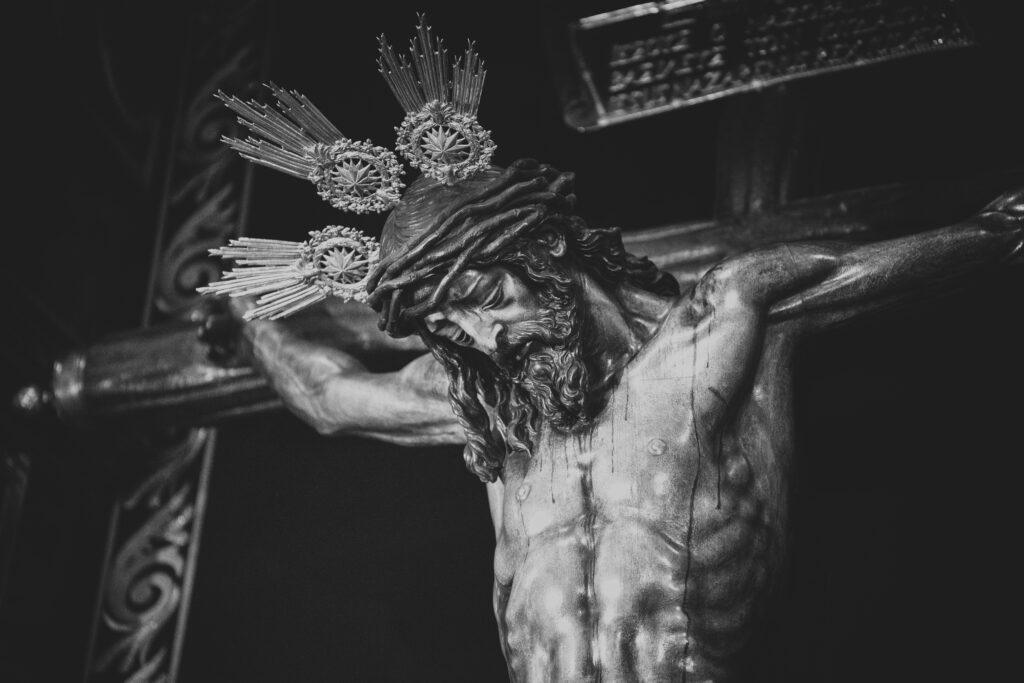Jesus’ exorcism in the context of Jewish tradition
The Gospel of Mark, describing the exorcisms of Jesus, is full of references to Jewish tradition. We see a huge problem the Jewish religious authorities had with the teaching and miracles of the Master of Nazareth. The polemic that took place between him and the scribes was fierce and concerned the most important claim of […]

The Gospel of Mark, describing the exorcisms of Jesus, is full of references to Jewish tradition. We see a huge problem the Jewish religious authorities had with the teaching and miracles of the Master of Nazareth. The polemic that took place between him and the scribes was fierce and concerned the most important claim of Jesus, who called himself the Son of God, carried the power and authority of God the Father, writes in a commentary on the Gospel of the 10th Ordinary Sunday, June 9, for the Heschel Center of the Catholic University of Lublin, its director, biblical scholar Fr. Marcin Kowalski, professor at the Catholic University of Lublin.
The scene narrated in today’s Gospel takes place in Capernaum, where Jesus visits the home of Simon and Andrew. At the sight of crowds gathering, the concerned family tries to stop him, fearing that he has gone out of his mind (Mark 3:21). Perhaps they fear that Jesus is acting under the influence of a demon. Their fears are further reinforced by the judgments of the scribes, who state that the Master casts out demons by the ruler of the demons (Mark 3:22). In their view, Jesus is practicing magic. The scribes came from Jerusalem to Galilee perhaps to determine whether the Master was deceiving the local inhabitants. We find similar accusations against Jesus in later rabbinic literature, where we read: “Jesus of Nazareth practiced magic and led the people astray” (b. Sanhedrin 43a; b. Sotah 47a). The same allegations against Christians were made by pagans, as evidenced by Origen’s polemic with Celsus (1:6). Celsus even calls Jesus a demon.
Exorcisms are a hallmark of Jesus’ public ministry in the Gospel of Mark (Mark 1:23-39; 3:11.15.22; 5:1-20; 6:7.13; 7:25-30; 9:17-26.38). One gets the impression that the entrance of the Son of God into our human world reveals the evil and darkness present within it. In Mark’s descriptions of exorcisms, the Son of God overcomes the forces of darkness, which, in the face of him, must acknowledge their complete helplessness. The Lord in today’s Gospel compares himself to the stronger one, who enters the house of the strongman, that is, Satan, binds him and sets free those who belong to him (Mark 3:27). It is illogical to accuse him of exorcising with the power of the evil one, since he shatters the power of the evil one and announces the collapse of his kingdom (Mark 3:23-26).
Jesus works by the power of God, brings healing and deliverance to suffering humanity. If anyone tries to attribute his miracles to Satan, commits the sin of blasphemy, a sin against the Holy Spirit, which according to the Lord will not be forgiven (Mark 3:28-30). Jewish tradition also knows sins that result in God’s irrevocable punishment. A rabbinic commentary on Deuteronomy 32:38 states: “The Holy One, blessed be he, pardons everything else, but on profanation of the Name [i.e. blasphemy] he takes vengeance immediately” (Sifre Deuteronomy 32:38). In the spirit of Jewish tradition, Jesus reads the accusations directed against himself as blasphemy against God, who acts through him. He calls the denial of the Son’s good deeds and the rejection of his mission a sin against the Holy Spirit, since it is the Spirit who testifies to the truth of Christ.
The Gospel of Mark, describing the exorcisms of Jesus, is full of references to Jewish tradition. We see a huge problem the Jewish religious authorities had with the teaching and miracles of the Master of Nazareth. The polemic that took place between him and the scribes was fierce and concerned the most important claim of Jesus, who called himself the Son of God, carried the power and authority of God the Father. To the believing Jews of his time, such claims seemed blasphemous. Even today, many Jewish believers have trouble accepting the divinity of Christ because of their sensitivity to the mystery of God’s transcendence, that is, the mystery of God who cannot be identified with man. The central truth of our Christian faith regarding the divinity of Christ constitutes the difference between us and our brothers and sisters representing Judaism. We pray that this truth might not divide but unite all people. This is the task of the Spirit of God, who also constantly calls us to respectful and loving dialogue.
About the Author:
Marcin Kowalski, professor of the Catholic University of Lublin – doctor of biblical sciences, Director of the Abraham Joshua Heschel Center for Catholic-Jewish Relations at the Catholic University of Lublin, member of the Pontifical Biblical Commission, defended his doctorate at the Pontifical Biblical Institute in Rome, lecturer of Holy Scripture at the Major Seminary in Kielce and Lublin, assistant professor at the Department of Biblical Theology and Proforistics at the Institute of Biblical Studies of the Catholic University of Lublin, editor-in-chief of the Bible quarterly The Biblical Annals, secretary of the Association of Polish Bible Scholars for the third term. His scientific and pastoral passion is the Bible, especially the letters of St. Paul.
Related

Christian Leadership in Business: A Model of Humility, Justice, and Solidarity
Javier Ferrer García
10 April, 2025
3 min

Guiding Our Decisions with God’s Will in Daily Life
Patricia Jiménez Ramírez
10 April, 2025
4 min

What are you going to do with your life?
Luis Herrera Campo
10 April, 2025
2 min

Dying to Self, Being Born to Love
Luis Herrera Campo
09 April, 2025
2 min
 (EN)
(EN)
 (ES)
(ES)
 (IT)
(IT)

